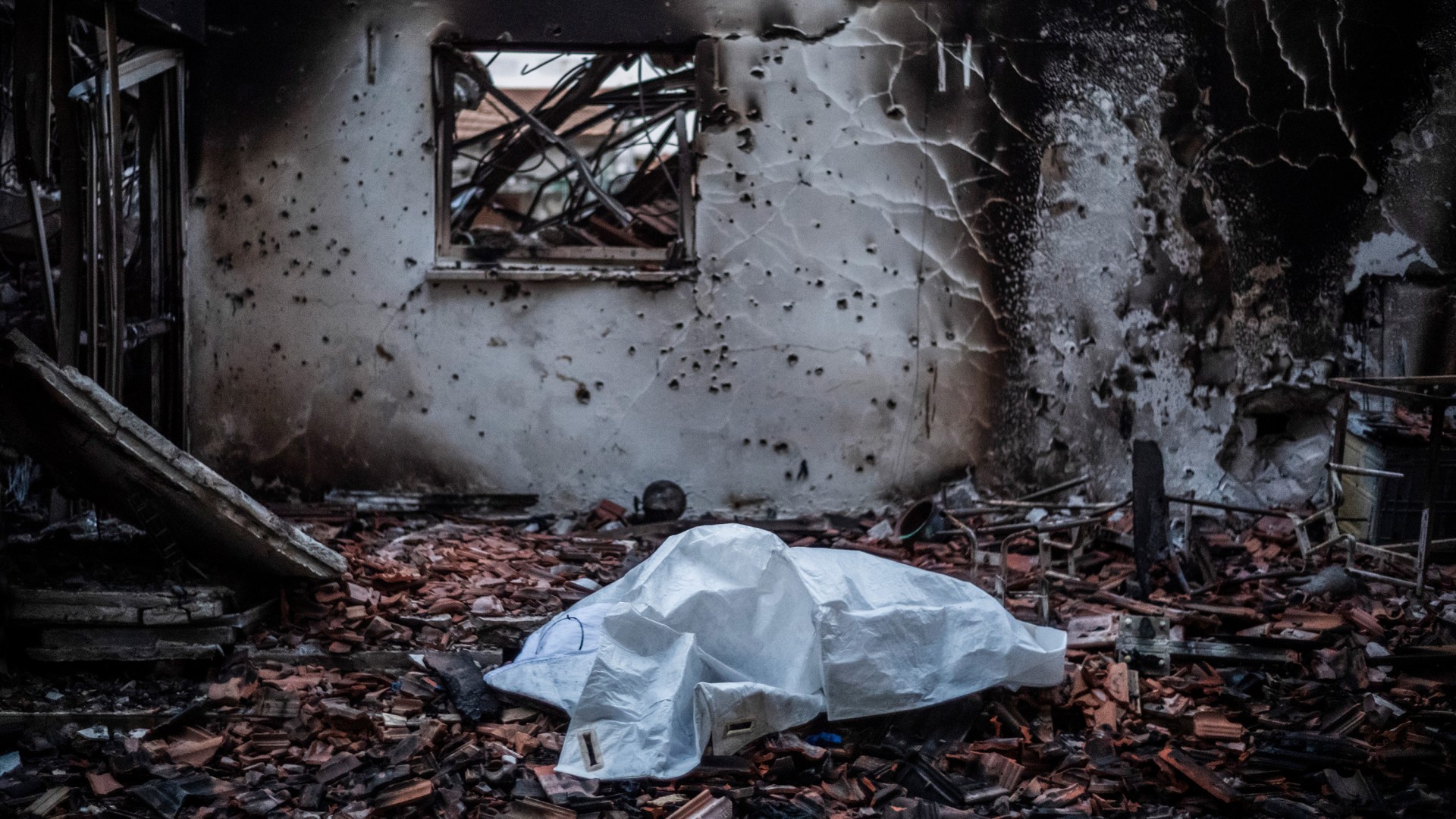Less than a week into the Israel-Hamas war, the casualty count is already in the thousands. Around 1,300 people have been killed by Hamas terrorist attacks in Israel as of this writing, with another 1,300 killed by retaliatory Israeli strikes in Gaza and more than 9,000 wounded.
It is difficult to fathom that many bodies. It is even more difficult to fathom that at least some of them were children.
The most shocking report is an allegation that Hamas beheaded babies and toddlers, a claim that was walked back by the Israeli military and the White House, then seemingly confirmed by The Jerusalem Post. We can hope this story turns out to be false. But it may be true, which is terrible to contemplate, let alone to endure it.
In either case, there are many evils in this war that are not coming untrue. Our world since the Fall has always been infected with sin, death, and devilry. Sometimes we can forget or ignore this sickness and suffering, especially we fortunate few in the safe and wealthy West. But that ignorance is not possible for many of us right now. This war has brought our sickness back to the surface, opening anew a putrescent wound we cannot heal.
In 1755, the Spanish city of Lisbon suffered an earthquake so devastating that it cast doubt on God’s very goodness. Wars like this one give a similar shock. The disputed story of beheadings flew fast around the globe because it is uniquely unintelligible: Who could behead a baby? How bent would a soul have to be to do violence to an infant, a toddler—a babbling little being who should know only care and comfort, not war and death? My youngest is five months old. It is obscene that those babies are not as safe as she.
But then I remember Psalm 137, perhaps the darkest of the imprecatory Psalms: “Daughter Babylon, doomed to destruction, happy is the one who repays you according to what you have done to us,” the psalmist rages. “Happy is the one who seizes your infants and dashes them against the rocks” (8–9). There’s nothing new about evil—both committed and suffered—and its capacity to produce a rot so foul.
For their part, the Israeli government’s retaliation against Hamas has been swift and severe. Airstrikes have targeted the terrorists, and at least in some cases, Palestinian civilians were warned before the bombs hit.
But Hamas uses human shields, Palestinian innocents and kidnapped Israelis alike. And even if they didn’t, Gaza is so small and its borders so sealed that civilians—44 percent of whom are children 14 or younger—have nowhere to run. Israeli strikes have reportedly hit homes, schools, hospitals, mosques, markets, and even refugee camps.
Markets is a funny word. It’s grown a little strange to modern American ears—we have farmers’ markets and flea markets and Christmas markets, but most of us don’t go to a “market” on any regular basis. A market for us is often a special occasion, something you do more for fun than to fill basic needs.
But the markets these bombs ripped through are essentially grocery stores. People were there for their ordinary shopping; they were buying vegetables, bread, meat. Think of a bomb falling on your Costco, Aldi, or H-E-B. Think of shrapnel tearing into you and your kids in the dairy aisle at Publix, Target, or Tops.
What is there to say for those of us who are thousands of miles away? Just this: Lord, have mercy.
It is right for the psalmist to speak honestly and bring his rage to God—not least because doing so can keep us from violence ourselves. And the same Scripture that records this hateful prayer also records God’s repudiation of the evil it envisions. Psalm 137 is an exposé of the blight of human sin; God’s ultimate answer to violence and injustice is found in the cross of Christ.
“The cross does not merely indicate the true character of God; it also shows the resistance of sin and evil to the love of God,” writes theologian J. Deotis Roberts in Liberation and Reconciliation. “Because of sin, human nature had been twisted and perverted,” but the cross “plumbs the depths of sin and evil, and it manifests the infinite value God places upon human life.”
We can and should pray for a swift and lasting peace in the Israel-Hamas war, but there’s no way of knowing how long the fighting will last. Maybe days, maybe years. Even the fastest truce will cancel no funerals. What we know for sure is that “the last enemy to be destroyed is death” (1 Cor. 15:26), and that enemy is insurgent in our world today.
And while there is little to nothing most of us can do directly to speed a resolution to this war, we can repeat, in dogged hope, what Paul wrote to the Galatians (1:3–4): “Grace and peace to you from God our Father and the Lord Jesus Christ, who gave himself for our sins to rescue us from the present evil age.”
Bonnie Kristian is the editorial director of ideas and books for Christianity Today.









